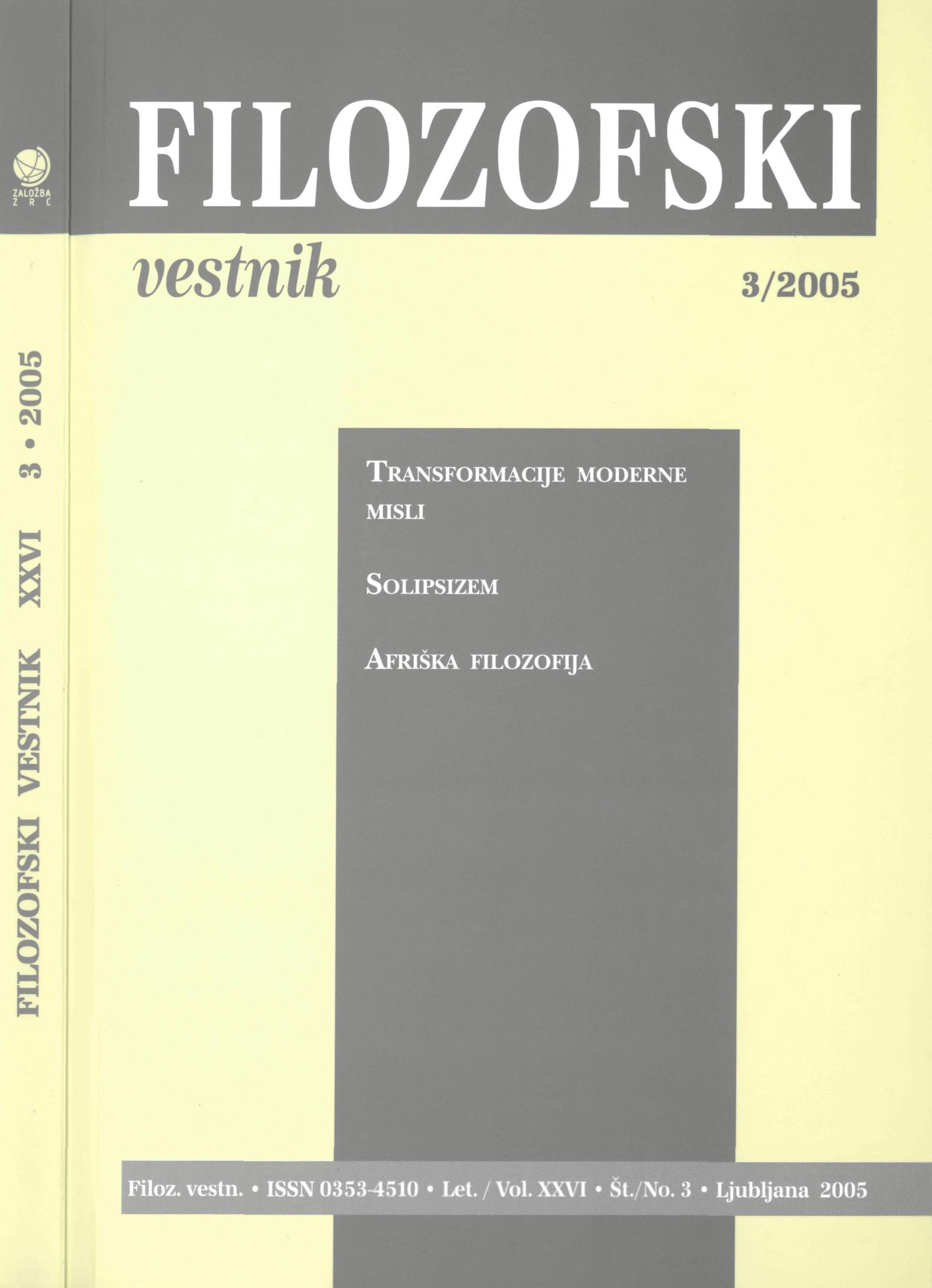Do Rta dobrega upanja in nazaj: tri vprašanja o afriški filozofiji
Ključne besede:
Afriška filozofija, primerjalna filozofija, medkulturna filozofija, etnofilozofija, politična etikaPovzetek
Afriška filozofija se je na obzorju filozofske zgodovine pojavila relativno pozno. V prvem delu se ukvarjamo z orisom njenega mesta v okviru zgodovine primerjalne in medkulturne filozofije. Njune metode nam omogočajo v nadaljevanju kritično pretresti vprašanje pomena etnofilozofskih rekonstrukcij v okviru afriške filozofije – tako skozi argumente njenih zagovornikov (Oruka) kakor tudi nasprotnikov (Hountondji). Prav področje etnofilozofije, obravnavano v drugem delu, namreč lahko pripomore k vnovičnemu premisleku o kriteriju filozofičnosti različnih pričevanj in besedil v razponu od začetkov grške filozofije in vse do sodobne afriške etnofilozofije. V sklepnem, tretjem delu, se slednjič iz perspektive etnofilozofije sprašujemo o medkulturnem okviru širših filozofskih oziroma političnoetičnih vprašanj. Skozi sopostavitev sodobnih političnofilozofskih analiz, s poudarkom na misli Th. Poggeja na eni ter afriških komunitarističnih teorij in ubuntu etike (Gyekye, Ramose) na drugi strani, želimo temeljna načela medkulturne filozofije uvideti v njihovem praktičnem (to je političnoetičnem) vidiku in razpreti polje družbenega upanja kot izraza skupnega filozofskega in političnoetičnega potenciala afriške filozofije in neafriških filozofij.Prenosi
Podatki o prenosih še niso na voljo.
Prenosi
Objavljeno
2016-03-05
Kako citirati
Škof, L. (2016). Do Rta dobrega upanja in nazaj: tri vprašanja o afriški filozofiji. Filozofski Vestnik, 26(3). Pridobljeno od https://ojs.zrc-sazu.si/filozofski-vestnik/article/view/4350
Številka
Rubrike
Afriška filozofija
Licenca
Avtorji jamčijo, da je delo njihova avtorska stvaritev, da v njem niso kršene avtorske pravice tretjih oseb ali kake druge pravice. V primeru zahtevkov tretjih oseb se avtorji zavezujejo, da bodo varovali interese založnika ter da bodo povrnili morebitno škodo.
Podrobneje v rubriki: Prispevki





